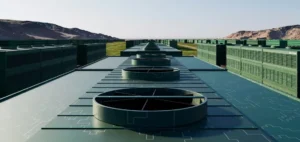Gas Liquids Engineering Ltd (GLE) announces the commencement of conceptual and detailed engineering design (FEED) of a major CO2 pipeline, compression and sequestration system for Whitecap Resources in the province of Saskatchewan. Whitecap currently operates one of the world’s largest anthropogenic carbon sequestration projects, transporting CO2 from two major industrial emitters to its existing capture, use and storage (CCUS) hub near Weyburn, Saskatchewan. GLE supports Whitecap’s planned decarbonization strategy, which includes expanding its existing hub to include transporting multiple additional industrial CO2 sources to new sequestration sinks. Following a final investment decision, engineering and construction, the project will represent a major expansion of Whitecap’s existing sequestration network, and a significant increase in Canada’s overall sequestration capacity.
GLE commits to Whitecap
Stuart MacKenzie, P.Eng, CEO of Gas Liquids Engineering said, “GLE is pleased to support a carbon sequestration leader such as Whitecap Resources, who already has an extensive portfolio of facilities, CO2 pipelines and operational expertise in their Canadian operations. This sequestration project would be a natural extension of their current business, and we look forward to applying GLE’s experience from previous large CO2 projects to achieve an efficient system design.”
Canada continues to increase its sequestration capacity
Once completed, Whitecap Resources’ new CO2 pipeline, compression and sequestration system will represent a major expansion of their existing sequestration network, as well as a significant increase in Canada’s overall sequestration capacity.






















